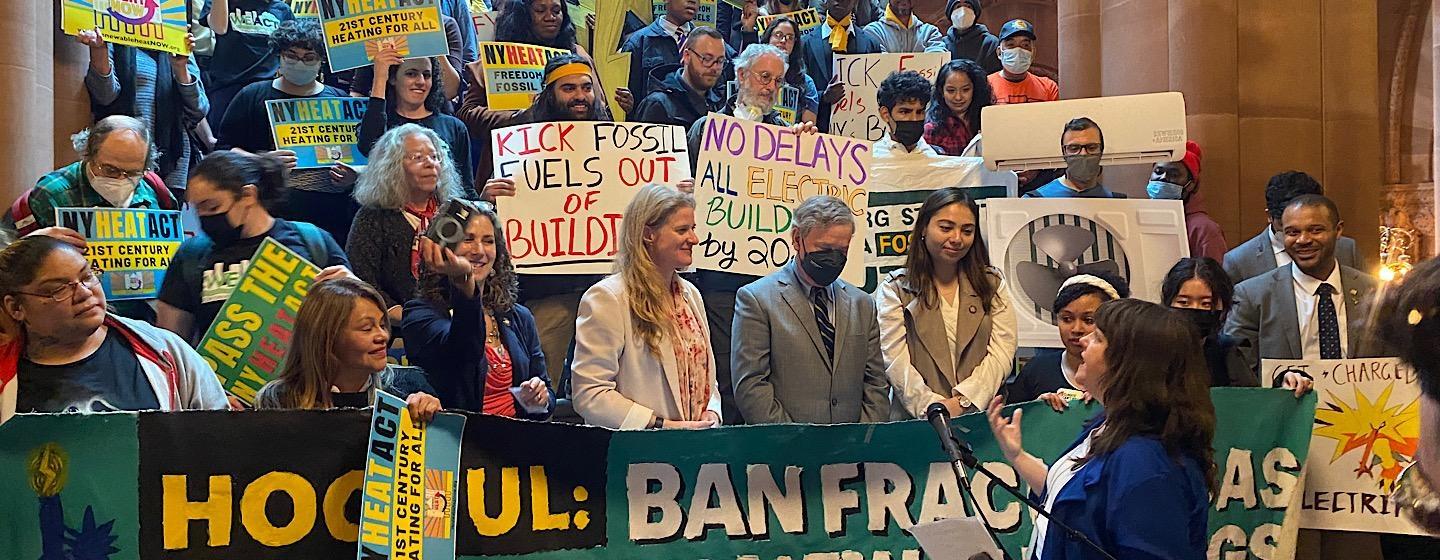Lawmakers Hope to Cap Electricity Bill Costs for Low-Income New Yorkers

Lawmakers Hope to Cap Electricity Bill Costs for Low-Income New Yorkers
With less than two weeks left until this year’s state budget deadline, lawmakers and advocates gathered in Albany on Wednesday to garner support for legislation that could lower utility bills for low-income New Yorkers.
In January, Gov. Kathy Hochul proposed the Energy Affordability Guarantee as the nation’s first program to ensure New Yorkers who earn less than $75,000 each year never spend more than six percent of their income on electricity bills.
The initiative was included in the Senate’s one-house budget and a standalone bill, sponsored by Sen. Liz Krueger, D-Manhattan, and Assm. Patricia Fahy, D-Albany, called NY HEAT.
“Heat is the Home Energy Affordability Transition Act,” Assm. Fahy explained.
Though the bill is still in committee, it would ensure utility regulation meets the Climate Leadership and Community Protection Act’s climate and reduced emissions targets, supporters claim, requiring certain sections of the public service law to be repealed.
While speaking to reporters last week, Senate Minority Leader Rob Ortt, R-North Tonawanda, expressed opposition to the bill.
“Let's talk about why utility costs are already high, many times they're high because of the taxes that are levied on the delivery of the energy to someone's home.In some cases they're high because they're getting propane or home heating oil and that's a delivery, right,” Ortt said. “They don't have infrastructure that delivers it right to their home. You know what does? Natural gas.”
“If everyone has to go to full electric, that's not gonna make utility rates less or cheaper by almost every account – it's going to make their utility bills more expensive,” the minority leader continued.
Assm. Fahy said legislators in favor of NY HEAT are aware of those concerns, but said the bill would lower energy costs in the long-term.
“We know we've got to put the incentives there because right now there are more upfront costs. In the end, all of these bills save the rate payer because if you've got solar, wind, other renewables heat pumps, your costs are going to be lower.”
Both the State Assembly and the Senate one-house budget resolutions, passed last week, included but amended Hochul’s proposal for phasing out the use of fossil fuels in new construction.
Her proposal, announced during the State of the State and based on recommendations by the state’s Climate Action Council, would electrify small buildings by 2025 and large buildings by 2028.
The Senate’s budget resolution is aligned with that timeline, but a proposal being pushed by the Assembly would require electrification of newly constructed small and large buildings by 2026 and 2029, respectively.
Fahy said the dates are subject to change, and that hitting the state’s ambitious climate goals would be a top priority.
“We know the industry is aggressively moving this way,” she said. ”Right now there are different dates and different bills, but those can be worked on and we all have to be flexible.”
Related
New York State Budget: Panel Discussion
Get an inside look at New York's state budget with a panel of experts including Josh Solomon from the Times Union and Rebecca Lewis from City & State NY. Discover the latest developments and potential impacts on the state's economy.
Explore More: https://nynow.wmht.org


